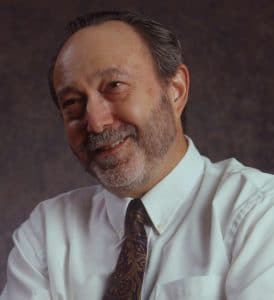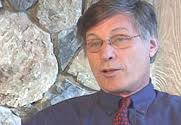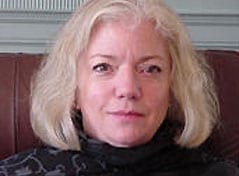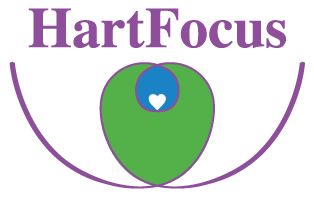Home »
Conference workshops english
After the conference days June 24 and 25 there will be four intensives. These workshops you will remember forever, much more than reading an article or listening a presentation of 1,5 hour.
Wednesday June 26 9.30-17.00: Prof Stephen Porges:
Neuroception and the Polyvagal Theory: Neural mechanisms mediating social behavior, emotional regulation, and health.

The workshop will discuss more deeply the Polyvagal Theory presented in the plenary talk. The Polyvagal Theory describes how a connection emerged in the brain between the nerves that control the heart and the face. This face-heart connection provided the structures for the “social engagement system” that links our bodily feelings with facial expression, vocal intonation, and gesture. Additionally, the workshop will explore how faulty neuroception can have an impact on autonomic regulation and social behavior and how understanding the features that trigger different neuroceptive states (safety, danger, and life threat) can be used as a strategy of treatment by triggering neuroceptive states of safety.
The outline below provides a summary of the topics that will be discussed in the workshop.
The Polyvagal Theory
- Evolutionary changes and adaptive functions in the autonomic nervous system
- The discovery of the three neural platforms that provide the neurophysiological bases for social engagement, flight/flight, and shutdown behaviours.
- Social Engagement System and Psychiatric and Behavioral disorders
- A description of the “face-heart” connection that forms a functional social engagement system
- How facial expressions, vocalizations, and gestures are regulated by neural mechanisms involved in regulating our autonomic nervous system Neuroception: Detecting and Evaluating Risk
- How social and physical environments trigger changes in physiological state
- Adaptive physiological reactions may result in maladaptive behaviors. Demystifying Biobehavioral responses to Trauma and Abuse
- Flight/fight and immobilization defense strategies
- Adaptive function of immobilization and the associated clinical difficulties
- Applying the Polyvagal Theory in Clinical Settings
- The importance of symbiotic regulation
- Strategies to explain disruption and repair of symbiotic regulation
- Identifying social cues that disrupt or repair defensive reactions
- The clinical consequence of treatments models that trigger the social engagement system
Wednesday 26 June: 9.30-17.00: prof Bessel van der Kolk
Trauma, Memory, and the Restoration of the Self

This workshop explores people’s basic rhythms within themselves and with their surroundings, and how these are disturbed my trauma and failures in attachment.
Because of altered biological systems, traumatized people continue to be trapped by their history and react to their current lives in a myriad of ways as a replay of the past. Because most experience is automatically processed in primitive, unconscious, levels in the brain, insight and understanding has only a limited influence on people’s control over these processes. In this workshop you will become acquainted with the latest neuroscience research on the effects of trauma on thinking, feeling and learning, and explore how we can affect disturbed rhythms by yoga, mindfulness meditation, touch, role play and movement.
We will look at the capacity of EMDR, yoga, theater work, and neurofeedback to help people deal with traumatic past experiences and reestablish the capacity to be fully alive in the present.
Thursday June 27: 9.30-17.00: Prof Stephen Porges part II:
Music as therapy: Exploring the common mechanisms mediating vocalizations, listening, and autonomic regulation
The workshop will focus on how and why music therapy would be helpfull in supporting mental health and trauma treatment. The study of music is informed by the Polyvagal Theory. From a Polyvagal perspective, we learn that music is intertwined with emotions, affect regulation, physiological state regulation, and interpersonal social behaviour. From this perspective involvement in all aspects of music is not passive and is more than the mechanics of listening or singing or playing a musical instrument. Music therapy involves active interactions among three features 1.therapist 2.client and 3 music. The workshop will focus on the principles incorporated in the Listening Project and the lessons learned through preliminary clinical trials and research. The Listening Project is an acoustic intervention, based on the Polyvagal Theory, designed to promote social engagement behaviors in individuals with problems in social interaction and communication. Specific acoustic frequency bands elicit different emotional experiences whioch are paralelled by adaptive physiological states.
The Listening Project is targeted at improving auditory processing and reducing hypersensitivity to sounds by “exercising” the neural regulation of the middle ear muscles.
Thursday June 27: 9.30-17.00: Prof Sue Carter
Oxytocin pathways in health, social behavior, and mental illness.


This workshop does not only give the behaverial neuroscience of oxytocine, but also the impact it can have in practice of wound healing, stressmanagement and prevention.
The workshop will provide a critical discussion of the clinical applications of oxytocin. Several clinically relevant issues will be discussed including:
1.Is there sufficient scientific justification for the use of oxytocin in clinical settings as a treatment for stress, PTSD or autism?
2.Is oxytocin involved in the regulation and normalization of autonomic function and emotion regulation?
3.Do antidepressants (and other medications involved in the management of mental health) dampen influence the function of oxytocin?
The workshop will elaborate on the ideas and hypotheses presented the plenary talk. The concept of oxytocin as a hormone of love and compassion will be discussed as well as the role oxytocin plays in stress reactivity and wound healing. Dr. Carter will discuss her research monitoring and manipulating oxytocin in mammalian species and her recent work studying oxytocin in various psychiatric disorders including autism, schizophrenia, and Williams syndrome. Moreover, she will discuss how environmental factors and early experience through epigenetic mechanisms can change the function of oxytocin receptors and retune oxytocin pathways.
Prof Miranda Olff will present in this workshop PTSD research connected to oxytocin.
